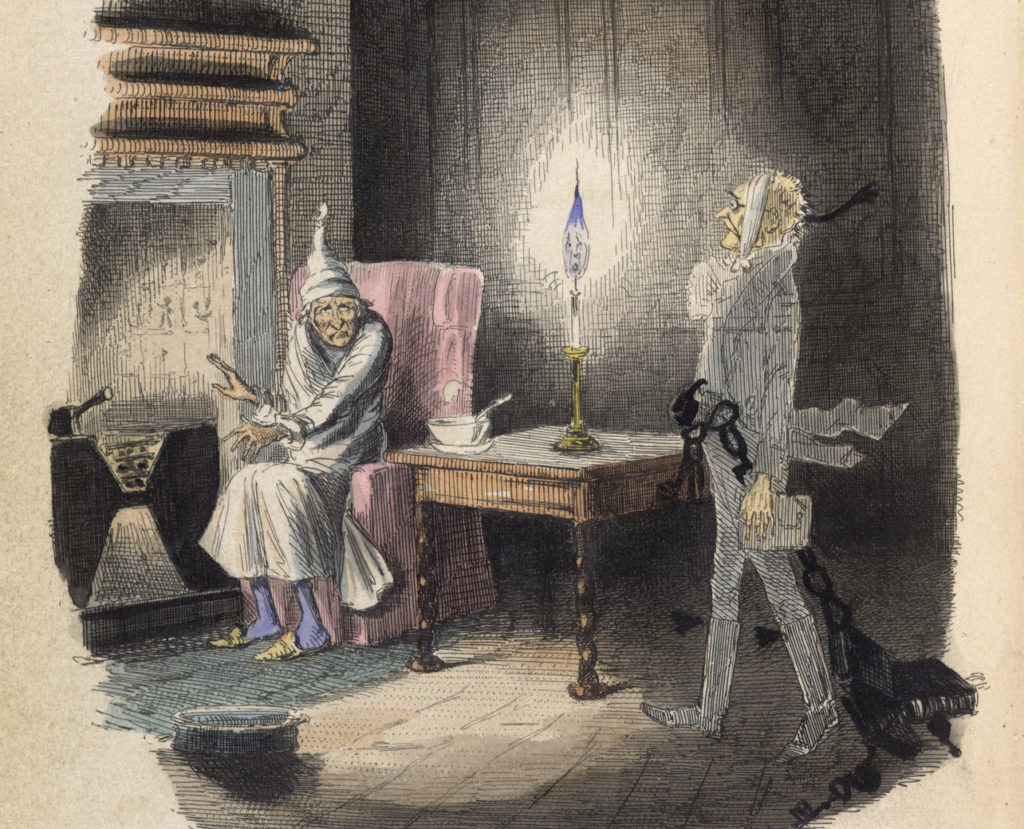
As of this writing, we now have two weeks to go before Thanksgiving in the US, which means we’re six weeks into advertising for Christmas.
Which, okay, the way things have gone as of late, between supply chain issues and the spike in prices therefrom, maybe we do need a little Christmas now. A little something cheerful, even if we do tend to veer away from the reason we have the day celebrated (with a few notable exceptions).
But this year, we’ve got two egregious examples of drawing the wrong lessons from the story.
Not the one you’re thinking about…

By now, everyone must have had some contact with A Christmas Carrol by Charles Dickens. A few movie adaptations, at least, including ones with Alastair Sim, or Albert Finney, or George C. Scott, or Patrick Stewart, or the Muppets.
It’s worth reading the original. Copies can be downloaded here, and the whole text is online for ease of reading. At the very least, having a quick summary on hand is an option.
Something the ad folks working on these products should have done before these got shot…
This, for example: Marley is visiting Ebenezer to show him the past, the present, and the future, a future where the electric car is a definite improvement over a horse-drawn hansom or the current gas-powered car.
Which… Wha’? The whole point of Ebenezer seeing the past, present, and future is to encourage him to be a better person, but here our Ebenezer is under no obligation to do better. Are we assuming that our protagonist is someone who doesn’t need to consider their past, and can ignore everything they did in their life because there’s a reward for it?
And considering our habits created a need for an electric car, don’t we need to be mindful of what led us there so that we don’t continue to make more mistakes? If ol’ Ebenezer here gets handed a new car and can’t take into account how the power grid needs to change to allow for plug-ins, then he really didn’t learn anything, did he?
(Please refrain from “electric car net zero” jokes; they weren’t that funny the first few times…)
Speaking of failing to learn, we get the above spot from Peloton, where Scrooge snarls at carolers before someone (with a few bucks and no sense) gifts him their bike. We then watch as he uses the product and finds himself healthier and happier (while the instrumental for Danny Elfman’s “What’s This?” plays in the background, because… Okay, I don’t know either…).
Scrooge may be happier and healthier, but there’s nothing to say he’s a better person. There are too many people, likely at least one of them you know personally, who are fit and together and yet still are f’n’ G-d a-holes; the only happy outcome suggested by the spot is that he stays inside on the bike for the rest of his life and is no longer anyone else’s problem.
(Considering Peloton has had issues with their commercial campaigns before, this is probably an improvement compared to that…)
Yes, the original source material is 179 years old as of this writing, but getting a worse mangling in a bad game of telephone than the other tales the holiday is based on, which have been around for far longer, seems at best really sloppy. That the main point in a story about self-reflection making someone a better person would get hurled to the curb without slowing the car down be lost in so cavalier a fashion is at best a misunderstanding, and at worst appropriation for nefarious commercial purposes.
It may be too late to save the original meaning of Christmas, but can’t we at least try to save the original meaning of A Christmas Carol…?

